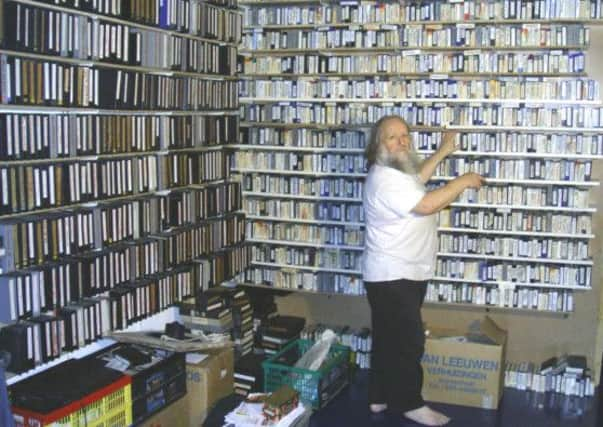Obituary: John Henry Moore, theatre director and curator


John Henry Moore played a prominent part in establishing the Traverse Theatre Club down a cold and draughty wynd off the High Street in Edinburgh. The former brothel (“Kelly’s Paradise”) was turned into a theatre club of international renown by Jim Haynes, Richard Demarco and a few others in 1962. Two years later Moore joined the group and he and Haynes brought into the tiny space avant-garde groups such as the Lindsay Kemp Dance Company and new and controversial dramatists. Moore directed Macbeth (with nude witches) and the cult musical The Fantastics.
Moore also had successes directing the Yugoslavian playwright Moma Dimic’s play The Very Long Life of Tola Manolovic and was instrumental in ensuring the Traverse mounted the premieres of many the Glasgow-born CP Taylor’s plays.
Advertisement
Hide AdAdvertisement
Hide AdDemarco, much involved with the Traverse at the time, spoke to The Scotsman yesterday. “Jack played a crucial role in the early years of the Traverse. He was a controversial figure because, when Jim Haynes decided to become an employee of the Traverse and be appointed its artistic director, he found himself at odds with the board.
“The board under its chairman Andrew Elliott, an Edinburgh lawyer, wished to regularise Jim’s role as artistic director and were not prepared to pay for Jack as his assistant.
“This led to a dispute and at a special annual general meeting attended by hundreds of members of the club, the board resigned, with the exception of the vice-chairman, who happened to be myself.
“Jim reconstituted the board under the chairmanship of Nicholas Fairbairn. At their first board meeting, Nicholas raised the question of Jack and when Jim refused to contemplate losing Jack he, Jim, offered his resignation. I was alone in disagreeing with the board’s decision.”
John Henry Moore – always Jack – was born in Oklahoma, and studied engineering at the University of Oklahoma, but changed to the theatre department and moved to work Off-Broadway in New York. He worked in the early 1960s in Dublin and with typical bravado approached Jim Haynes at the Traverse, enquiring about work.
In 1967 Haynes and Moore left Edinburgh and moved to London and founded The London Traverse Theatre Company with support from the then arts minister, Jennie Lee. An early success, which transferred to the West End, was Joe Orton’s Loot, while Yoko Ono conducted her first “happening” at the London Traverse’s base at the Jeanetta Cochrane Theatre.
The venture was launched in grand style at the Roundhouse with a new band called Pink Floyd. Haynes and Moore also opened the Arts Lab in Covent Garden and Moore directed Steven Berkoff’s adaptation of Kafka’s In The Penal Colony and Jane Arden’s play Vagina Rex and the Gas Oven.
Moore was established as one of the hippy gurus of the decade and co-organised a major Sixties event in Alexandra Palace, north London in 1967, The 14 Hour Technicolor Dream. The following year, at the Albert Hall, he acted as a silent master of ceremonies for The Alchemical Wedding, at which Lennon and Ono conducted their “bag happening” amid scenes of naked dancing.
Advertisement
Hide AdAdvertisement
Hide AdWhen Moore became fascinated with video-taping live events Lennon and Yoko Ono gave him the latest equipment and he formed the Videoheads, a visual arts collective.
Their archive contains artworks, music, memorabilia, movies of pop groups and underground theatre and historic black-and-white pictures of Moore talking on a large sofa to John Lennon and Yoko Ono then to Salvador Dali.
The music archives include performances by Philip Glass, Pink Floyd and The Who – many of which have never been seen in public and are stored in Moore’s floor-to-ceiling archives in Amsterdam.
Outside Scotland Moore is principally known as a pioneering video film-maker and sound recordist; over half a century he amassed more than 70,000 hours of tape.
In 1970 he moved to Amsterdam and founded yet another avant-garde theatre, The Melkweg (The Milky Way) close to Vondel Park which was the centre of the hippy commune at the time. The theatre became, and remains, a principal fringe venue in the city and in place of the stall seats boasted a large sofa which made for a laid-back atmosphere.
Moore had always been open and honest about being gay – his thick beard gave him an avuncular, Falstaffian appearance. He was a man blessed with much charm and gracious wit who never suffered fools gladly. He retained an independent mind and attitude all his life and was a product of the hippy culture and has, rightly, been described as one of the “unpindownabes of the counter culture”.
He spent his last few years in Paris where he underwent serious cancer surgery. Just before his death he issued a statement which read: “Penniless artist dies alone in Paris. This is hardly news.”